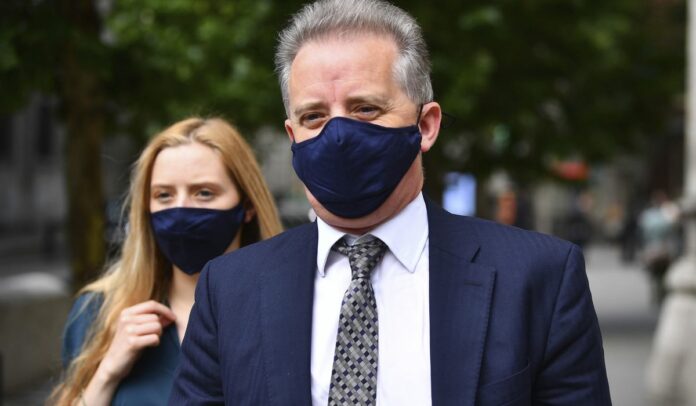The shadowy figure who funneled information to Christopher Steele for his notorious election year dossier is Igor Danchenko, a Ukraine-born, Russian-educated researcher who worked in the U.S. and traveled to Moscow to find supposed dirt on candidate Donald Trump.
Washington attorney Mark E. Schamel told the New York Times that Mr. Danchenko is his client. He told the Times, “Igor Danchenko has been identified as one of the sources who provided data and analysis.”
A number of social media activists had identified Mr. Danchenko as did RealClearInvestigations.
Senate Judiciary Committee chairman Lindsey Graham, South Carolina Republican, released a 60-page declassified FBI report that detailed three interviews with Mr. Danchenko in January 2017. The research’s name was omitted, referred to only as Mr. Steele’s “primary sub-source.”
Social media sleuths took tidbits from the heavily censored document during the week and pieced together enough biographical information to name Mr. Danchenko.
He describes himself on his restricted Twitter account as, “Russia/Eurasia political & economic research & analysis, energy, due diligence.”
Mr. Danchenko was on the payroll of Mr. Steele’s Orbis Business Intelligence in London. He also worked at the Brookings Institute. He co-authored a 2010 Brookings paper–––“One Step Forward, Two Steps Back? The Realities of a Rising China and Implications for Russia’s Energy Ambitions,” with Fiona Hill.
Ms. Hill went on in 2017 to join President Trump’s National Security Council staff as a senior European specialist. She also testified at his House impeachment hearing. She said she believed Mr. Steele, whom she once worked with when he was a British intelligence officer, was played by Russian disinformation.
Mr. Danchenko met Mr. Steele in London as he was setting up Orbis. He eventually landed on the payroll. Mr. Steele asked him in 2016 in investigate Mr. Trump and Russia. His work was funded by the Democratic Party and Hillary Clinton campaign.
The striking themed in the FBI interview notes is that Mr. Danchenko relied on a group of like-minded friends, some drinking buddies, for stunning allegations against Mr. Trump and his associates — all of which eventually proved untrue. There are no first-hand Russian sources.
Among the claims: Mr. Trump funded Russian hacking, his lawyer secretly visited Prague to meet with Vladimir Putin operatives, and there was a well-developed conspiracy between the Trump campaign and the Kremlin.
The Prague trip claim came from a lifelong female friend of Mr. Danchenko. The conspiracy claim came in an anonymous 15-minute phone call.
Mr. Graham said the FBI document showed the primary source relied on second and third-hand information and that Mr. Steele embellished some narratives before delivering report memos to Fusion GPS, his handler in Washington.
A Justice Department Inspector General report said intelligence agencies warned the FBI that the dosser contained Kremlin disinformation.
The dossier’s importance to the Russia probe cannot be overstated. It was the critical piece of information the FBI needed to gain wiretaps on Trump volunteer Carter Page. It supplied the foundation for allegations against Mr. Page and other Trump associations. And it fed the mainstream news media and Democrats a basket full of Trump allegations to repeat until government reports ultimately disproved Mr. Danchenko’s and Mr. Steele’s work.
“The document reveals that the primary “source” of Steele’s election reporting was not some well-connected current or former Russian official, but a non- Russian based contract employee of Christopher Steele’s firm,” Mr. Graham said. “Moreover, it demonstrates that the information that Steele’s primary source provided him was second and third-hand information and rumor at best.”
The FBI told wiretap judges that the primary sub-source was based in Russia. Mr. Graham said he was not.
The New York Times, a prime peddler of a Trump-Russia election conspiracy narrative that was ultimately debunked, turned the Danchenko revelation into an anti-White House story.
The headline: “The F.B.I Pledged to Keep a Source Anonymous. Trump Allies Aided His Unmasking.”
In a followup interview in March 2017, Mr. Danchenko told the FBI his sub-sources’ information was not worth “a grain of salt.”
Still, the FBI continued to rely on the dossier.






